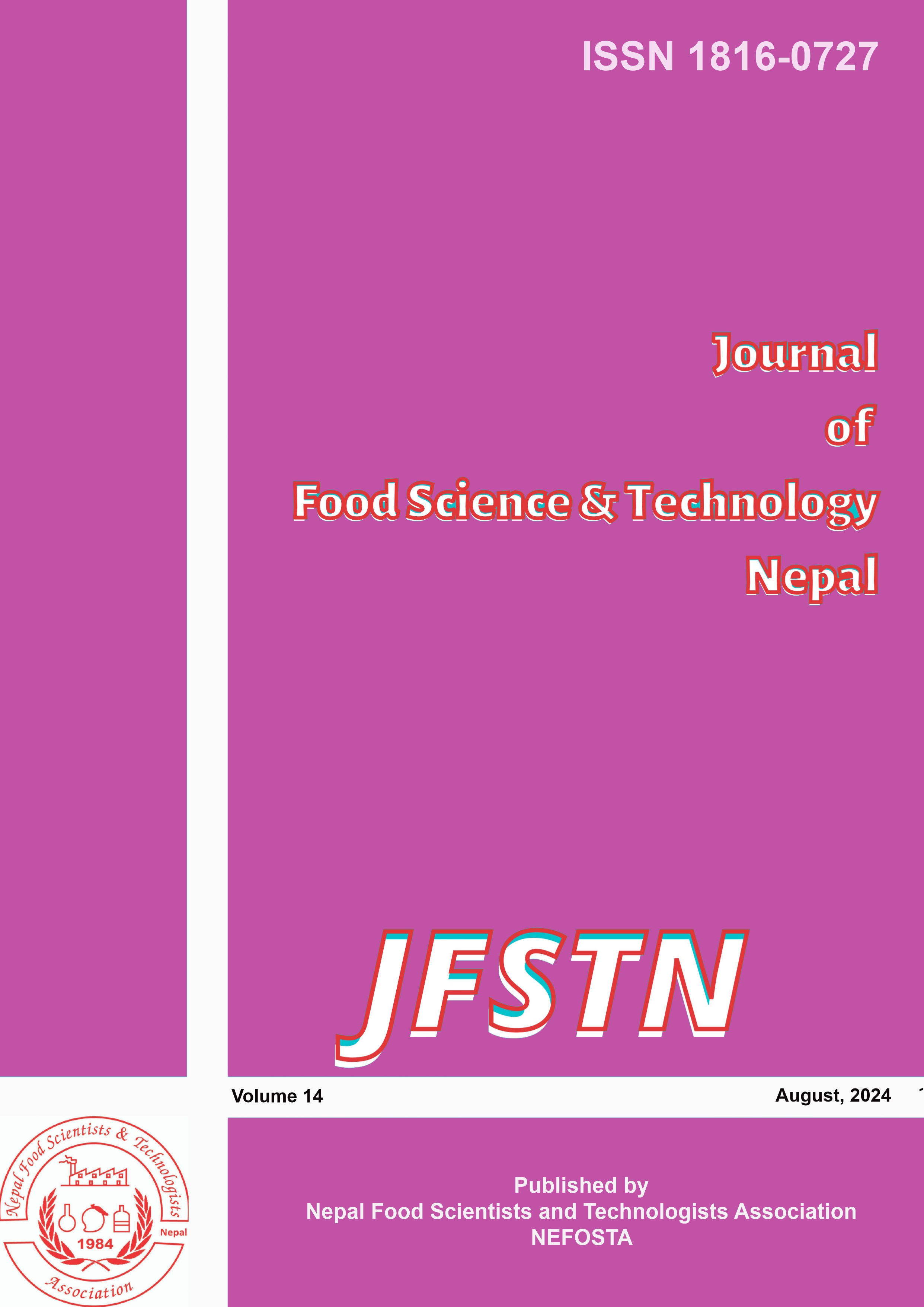Food Fortification: Global Experience, Importance, Challenges and Potential in Nepal
DOI:
https://doi.org/10.3126/jfstn.v14i14.71713Keywords:
Micronutrient deficiencies, food fortification, public health, nutritional interventions, Iodine deficiency disorder, anemia reductionAbstract
Micronutrient deficiencies are a significant global health concern, especially in developing countries like Nepal. This review explores the effectiveness, challenges, and strategies of food fortification in combating these deficiencies. Drawing from diverse sources, including government reports, academic literature, and international organizations, we analyze the types of fortification, their implementation, and their impact on public health. This review highlights significant improvements in health outcomes through food fortification initiatives, such as a 32% reduction in anemia and a 58% decrease in vitamin A deficiency, as evidenced by global studies. In Nepal, fortification efforts, particularly salt iodization, have successfully reduced iodine deficiency disorders. However, challenges remain in ensuring coverage, quality control, public awareness, and stakeholder collaboration. Key considerations such as monitoring, quality control, consumer acceptance, and sustainability are examined. The review underscores the importance of fortified foods in improving nutrition and highlights successful interventions. The review provides detailed recommendations for future initiatives, emphasizing the need for enhanced multi-sectoral cooperation, rigorous quality assurance protocols, and comprehensive public education campaigns to ensure the long-term success and sustainability of fortification programs
Downloads
Downloads
Published
How to Cite
Issue
Section
License
The author will be the copyright holder of this open access journal - 'Journal of Food Science and Technology Nepal (JFSTN)'.




